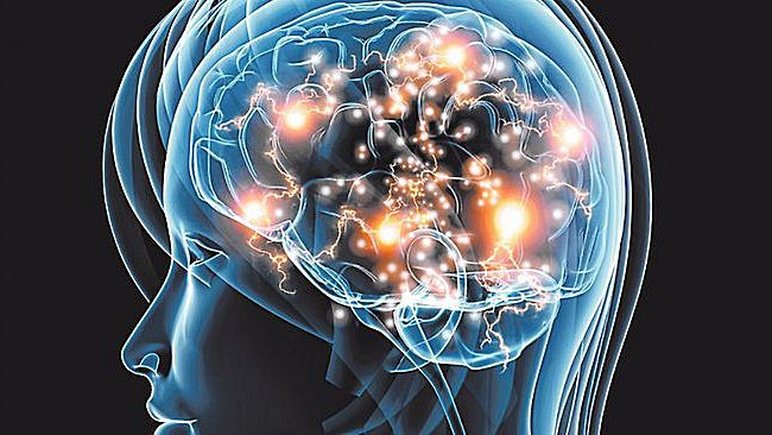|
What determines the intelligence of a person? There are many voices and studies that defend the idea that our IQ is determined or very conditioned by the genetic code. However, that relationship is not always direct or as clear as it seems. In fact, there must be many other factors for this intellectual predisposition to manifest itself.
When we speak of high abilities it is almost obligatory to refer to a particular name: William James Sidis . This young man, of fleeting trajectory and who died in the mid-40s in the United States, is considered until now the man with the most surprising (and documented) intellectual abilities. In fact, it was estimated that his IQ was above 250 points.
The most striking thing about Sidis was his education. If he could enter with only 9 years at Harvard University it was not only because of his genetic inheritance. His mother, Sara, was a doctor and his father, Boris, a psychiatrist and an expert in developmental psychology. So, if there was one thing that these two Ukrainian scientists knew, it was that developing a high IQ did not depend exclusively on our 23 pairs of chromosomes. A high intelligence is the result of a facilitating environment added to a receptive brain. The Sidis marriage guided the life of their son towards a single goal: to maximize their cognitive abilities. The result exceeded your expectations. However, this young man was more than just a child prodigy: he was a clearly unhappy person. High intelligence and genetics: intelligent parents brilliant children? Intelligence, like human behavior, is a complex feature. Defining it however is not difficult, because it includes all those experiences where a person shows a clear ability to learn, to reason, plan, solve problems, think abstractly, understand complex ideas and give highly creative responses. However, knowing exactly what produces individual differences in each of these competences has always been a challenge. We could say right now that it is the genetic inheritance that gives shape to each of these abilities. Moreover, the University of Glasgow conducted a study in 2016 where it was shown that those genes associated with cognitive functions are inherited mainly from mothers . The X chromosome, so to speak, would determine to a large extent our intellectual potential.
Now, we speak in conditional because everything is not so clear. A recent study published in the journal " Genetic Reference " has shown us something that experts have been intuiting for almost a century. Social environments are what mold us, who set the conditions for us to reach or not all our cognitive potential. The genetic inheritance, on the other hand, would only determine us by 40%.
Intelligence, a dimension sensitive to an infinity of factors Neurologists often comment on the following: we overestimate the idea of high intelligence . When brain surgery is performed, there is no specific area that distinguishes it. There is no specialized structure to make us brighter than the rest. In reality, it is a host of processes acting in harmony, a hyperconnected synaptic world that makes up a brain more awake, more sensitive, more effective than the average. High intelligence can depend on our genes, but a large number of factors are added:
Unfavorable parenting and cerebral plasticity At this point, it is likely that one of our readers asks a question. What happens if my genetic inheritance is associated with a high intelligence but I have not had a favorable childhood to develop it? What happens if my environment has not been favorable and my academic performance has been low? Does this mean that I can never improve my IQ?
Every psychologist or passionate psychologist has in his mind a key figure in this discipline. We are talking about Kurt Lewin . The father of modern social psychology gave us a term that laid the foundations for many theories and later studies: field theory or the power of context . In essence, what Lewin showed us is that human beings are the result of the interaction of all their experiences, the past and above all the present ones. We are, our attitudes, what we choose to do with everything we have lived.
Thus, something that could be seen studying the trajectory of separated twins at birth and raised in different contexts, is that an unfavorable environment, with scarce economic resources, significantly influences the development of intelligence . However, our potential is not completely diminished or extinguished by these sterile conditions. Not if the person has the opportunity at a given moment to face or to build an environment that allows him to recover the "lost territory".
Lewin discovered that when the twin raised in an unfavorable environment distanced himself from the dictates of his adoptive parents, he was free to let his genotypes express themselves. His cognitive abilities improved when finding a motivation, an objective according to his interests and an environment that facilitated his goals. The brain, after all, is not a fixed and stable entity. The brain plasticity, our curiosity and our will are able to produce genuine miracles.
0 Comments
Your comment will be posted after it is approved.
Leave a Reply. |
SHAREWe also offer psychological and life coaching consultation services online.
If you want to schedule your session, click the button below. YOU CAN ALSO SUPPORT OUR WORK THROUGH PAYPAL
Categories
All
Archives
June 2021
|
